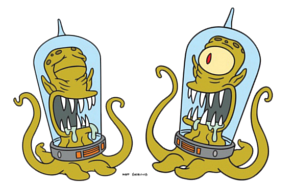The Silence of Animals, the new offering by international man of misery, John Gray.
The Silence of Animals - John Gray - AmazonWhen Conrad used his experiences of the Congo in Heart of Darkness (1899), he was not telling a story of barbarism in faraway places. The narrator tells the tale on a yacht moored in the Thames estuary: barbarism is not a primitive form of life, Conrad is intimating, but a pathological development of civilization. The same thought recurs in The Secret Agent (1907), Conrad’s novel of terrorism and conspiracy, which is set in London. The anarchist Professor, who travels everywhere with a bomb in his coat that he intends to detonate if arrested, wants to believe that humanity has been corrupted by government, an essentially criminal institution. But, as Conrad understood, it is not only government that is tainted by criminality. All human institutions - families and churches, police forces and anarchists - are stained by crime. Explaining human nastiness by reference to corrupt institutions leaves a question: why are humans so attached to corruption? Clearly, the answer is the human animal itself. (from The Silence of Animals by John Gray)
Interview with a writer: John Gray - spectator - 2.22.2013
The Silence of Animals - review - guardian - 2.15.2013
The Silence of Animals - review - telegraph - 2.19.2013
***
Also,
Conrad in the Nineteenth Century by Ian Watt - amazon
Ian Watt (Literary Critic) - wikipediaBorn March 9, 1917, in Windermere, Westmorland in England, Watt was educated at the Dover County School for Boys and at St John's College, Cambridge, where he earned first-class honors in English.
Watt joined the British Army at the age of 22 and served with distinction in World War II as an infantry lieutenant from 1939 to 1946. He was wounded in the Battle of Singapore in February 1942 and listed as "missing, presumed killed in action."
In fact, he had been taken prisoner by the Japanese and remained a prisoner of war at the Changi Prison until 1945, working on the construction of the Burma Railway which crossed Thailand, a feat that inspired the Pierre Boulle book 'Bridge Over the River Kwai', and the film adaptation by David Lean. He criticized both the book and the film for the liberties they took with the historical details of his imprisonment and, more subtly, their refusal to acknowledge the moral complexities of the situation.
More than 12,000 prisoners died during the building of the railroad, most of them from disease, and Watt was critically ill from malnutrition for several years.
"There was a period when I expected to die," Watt told the San Francisco Examiner in a 1979 interview. "But I didn't know how sick I was until they gave me some of the vitamin pills that had just come into the camp. I remember being very surprised that I was considered sick enough to receive vitamins."
Professor Watt died in Menlo Park, California, USA. (from wikipedia)
***
Gratuitous film clip:
Lord Jim (1965) - youtube
Lord Jim - wikipedia














Bookmarks